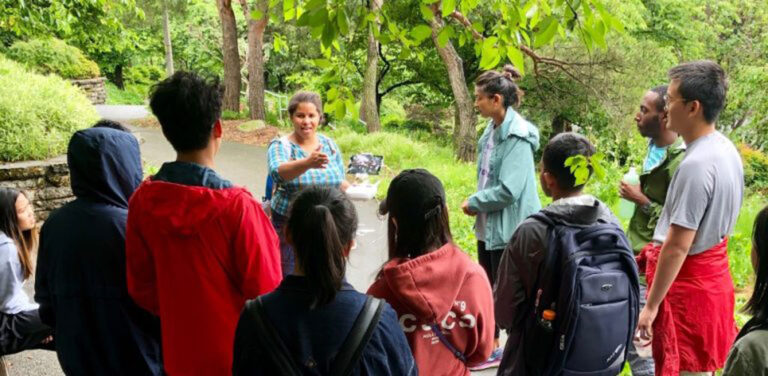AAG Stands in Support of Equitable Education at Colleges and Universities
In light of the U.S. Supreme Court decision striking down race-conscious admissions at Harvard College and the University of North Carolina, AAG remains resolute in its support for policies and practices that create the conditions for racial equity, representation, and opportunity in education.
Our recent study of the State of Geography found the greatest area of growth in geography degree conferrals in recent years is among students from historically underrepresented groups. Creating strong pathways for them to seek and pursue a degree in geography is quite literally the future of our discipline. AAG stands in support of strategies that can restore or maintain representational balance in college admissions processes overall and within geography departments.
As Justice Jackson stated in her thorough dissenting opinion in the UNC case, the forces that brought us to the present gap in access to college education are old, but their impacts are very present. There is much work to be done. While the Supreme Court ruling focuses on specifically barring race as a factor in admissions, it doesn’t limit an institution’s outreach activities, engagement, retention or completion strategies aimed at enrolling diverse student bodies.
With today’s decision, we are issuing a call for sustained action by geography departments to strengthen a commitment to a Culture of Care:
- Sponsoring mentorship, student and faculty support, and community through opportunities to sustain Black, Indigenous, and people of color geographers such as Penn State’s Geography’s GENIUS Program, an NSF-sponsored initiative that worked with undergraduates to support their graduate school application process; and the Advancing Geography Through Diversity Program (AGTDP), a nationally recognized graduate student recruiting and development program within Michigan State University’s Department of Geography, Environment, and Spatial Sciences recruit and provide financial and other support to outstanding Masters and Ph.D. students from key underrepresented groups including African Americans, Native Americans, and Hispanic Americans in order to increase the number and percentage of doctoral degrees awarded to these underrepresented groups
- Listening, valuing, incorporating and contending with the broad disciplinary, institutional, and individual actions needed to detoxify spaces and places of geography;
- Supporting faculty and students to attend specialty group conferences and initiatives developed by Black, Indigenous, and people of color geographers (e.g., Berkeley Black Geographies Student Conference);
- Supporting faculty and students at Hispanic Serving Institutions, Historically Black Colleges and Universities, Minority Serving Institutions, Asian American Native American Pacific Islander-Serving Institutions, Alaska Native and Native Hawaiian Serving Institutions, Predominantly Black Institutions, Native American-Serving Institutions, and Tribal Colleges and Universities; and
- Taking action to eliminate “toxic environments” at home institutions within which geographers of color often teach, research, and write (Mahtani 2014).
AAG will continue to work with our members to create and maintain equitable, diverse, and representative geography departments.
Several suggestions for action are drawn from Tianna Bruno & Cristina Faiver-Serna (2022) More Reflections on a White Discipline, The Professional Geographer, 74:1, 156-161, DOI: 10.1080/00330124.2021.1915822. Observations on toxic learning environments is from Minelle Mahtani (2014). Toxic geographies: Absences in critical race thought and practice in social and cultural geography. Social and Cultural Geography 15 (4):359–67. DOId 10.1080/14649365.2014.888297. Suggestions on the many activities that are not limited by the Supreme Court decision are from Deborah Santiago, CEO and co-founder of Exelencia in Education.
Biogeography Specialty Group
Black Geographies Specialty Group
Climate Specialty Group
Community College Affinity Group
Development Geographies Specialty Group
Digital Geographies Specialty Group
Economic Geography Specialty Group
Geographies of Food and Agriculture Specialty Group
Geography of Religions and Belief Systems
Health and Medical Geography Specialty Group
History of Geography
Human Dimensions of Global Change
Landscape Specialty Group
Mental Health in the Academy Affinity Group
Middle East and North Africa Specialty Group
Political Geography Specialty Group
Protected Areas Specialty Group
Rural Geography Specialty Group
Stand-alone Geographers Affinity Group
Transportation Geography Specialty Group
Water Resources Specialty Group
Wine, Beer and Spirits Specialty Group


